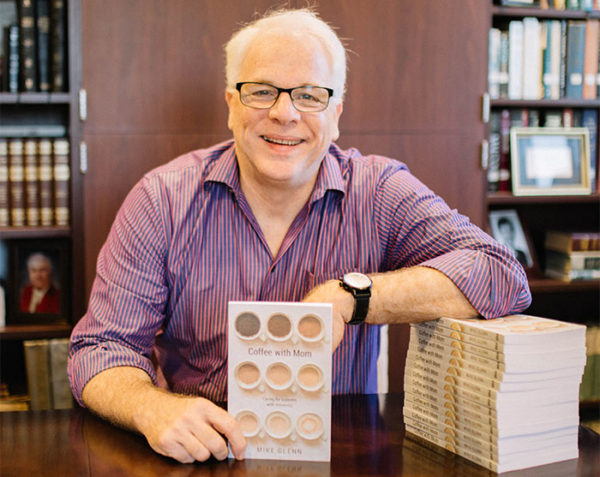On Jan. 26, Tom Bennich left for a missions trip to help Venezuelans fighting to recover from flooding that hit country the week before Christmas. On Jan. 27, he was in a Caracas hospital fighting for his life.
The flooding resulted in landslides that killed more than 40,000 people and left 400,000 homeless. Pure water is scarce in some areas, and Bennich was part of an Alabama team sent in to set up water purification plants in the Venezuelan countryside.
A member of First Baptist, Hartselle, Bennich is a veteran of relief efforts both in the United States and overseas and showed no symptoms of illness as the trip began. The second day out, the team went to a church in the mountain where an entire village was destroyed by flooding.
As the crew worked on its first assignment, Bennich began to feel ill. Thinking he had “the bug,” he quickly grew worse.
Bennich said he had been sick about an hour when Darrell Horn, a career missionary, told him he had seen “the bug,” and Bennich was suffering from something far worse.
“I wanted to wait and see if I got better, but he insisted on taking me to the hospital,” Bennich said. “He saved my life.”
Horn took Bennich and two of his friends, Don Russ and Ken Floyd, to a hospital in Caracas. The ride, according to Bennich, was uncomfortable.
“He didn’t let up on the gas, and I assure you Lottie Moon didn’t buy any shocks,” he said.
The ride was also frightening at times; Horn hit a moped, but both driver and cycle were unharmed.
Hospital personnel recognized the severity of Bennich’s condition immediately. Within a few minutes, they had blood drawn, an IV was running and tests revealed a frightening picture.
Bennich had an enlarged pancreas, numerous gallstones and a ruptured gallbladder. The ducts leading to his pancreas were blocked by stones and his pancreas was near rupture. To survive, Bennich would need surgery immediately.
Fortunately for Bennich, Horn had chosen his destination carefully. Bypassing several hospitals, the missionary had chosen a facility that boasted modern equipment and was staffed by doctors trained in the United States.
Even in dire circumstances, Bennich was mindful of why he had come to Venezuela.
“I asked the doctor if he was a Christian and he said ‘No,’” Bennich said. “I told him I was, and God was here, so that made two-thirds of us. That was the first time the doctor had ever been witnessed to,” he said.
It was about that time Bennich said a woman stuck her head in the door and she told him, “I’m your angel, and I’m here for you.”
The angel was Jerri Lowder, another career missionary from the area. She and other missionaries stayed at the hospital during Bennich’s stay, comforting him, reading to him and keeping his family in Alabama informed about his progress. Charlie Sanford, a team member from West Hartselle, also remained at the hospital the entire time and accompanied Bennich on his trip home.
The doctor in Venezuela removed the gallstones, unblocking the ducts to Bennich’s pancreas and gallbladder. The surgery went well, but it was several days before he was able to be transported back to the United States. In the meantime, Bennich gave away the Bibles he had and witnessed to hospital personnel as he could.
“I didn’t mix any water, but I got to witness,” he said. “There are eight Bibles in that hospital that weren’t there before. People 30 to 40 years old had never been asked, ‘Do you know the Lord?’”
The International Mission Board (IMB) made arrangements for a Med Flight Lear jet to fly Bennich to Decatur as soon as he was able to travel. He had further surgery to remove his damaged gallbladder following his return home and is expected to make a full recovery.
Bennich is full of praise for his friends, missionaries, medical personnel and the IMB for the manner in which he was cared for. But he knows they are not responsible for his survival.
“The Lord took care of me,” Bennich said. “I wouldn’t be here if He hadn’t.”




Share with others: